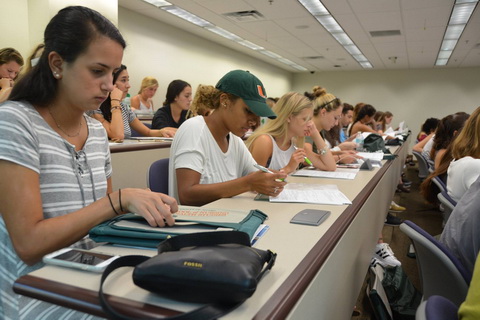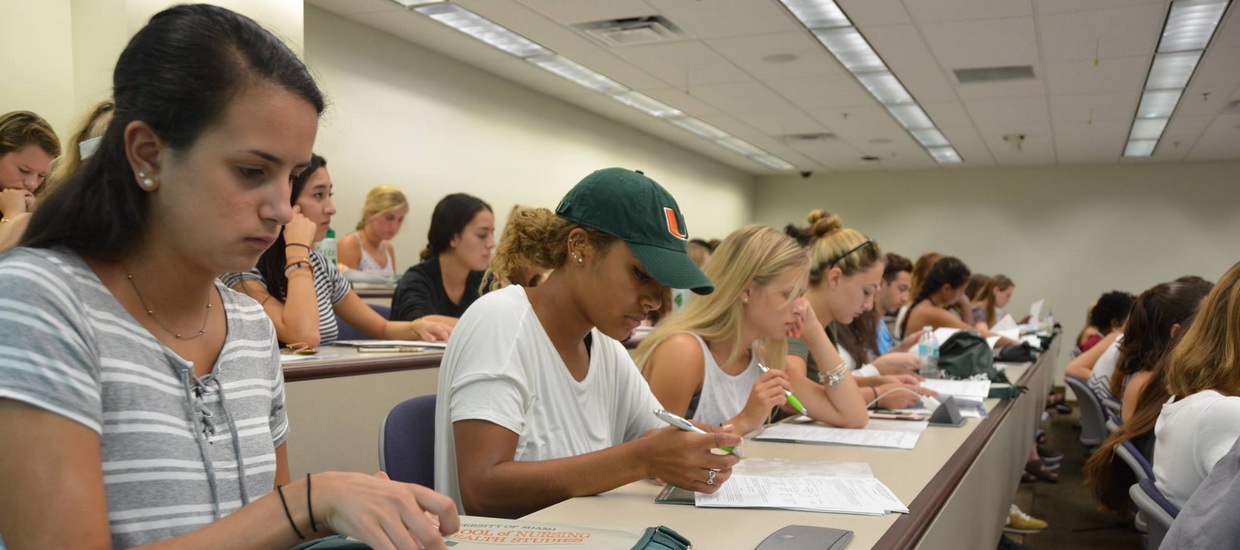- Who should apply to the University of Miami’s Doctor of Philosophy (PhD) Program in Nursing?
Individuals who wish to advance the discipline of nursing science through research, contribute to the body of nursing knowledge, and provide leadership to the nursing profession should consider applying to the PhD program.
- Do you offer a BSN to PhD Option?
Yes. Admission to this option is only offered to individuals who have demonstrated prior superior academic achievement and whose scholarly interests are consistent with the School of Nursing and Health Studies’ (SONHS) research mission.
- If admitted to the BSN to PhD Option, is a Master;s degree given along the way?
No. A master’s degree is not awarded in the BSN to PhD option.
- What should be written in the Statement of Goals?
The statement should clearly identify the applicant’s particular research interest and include related clinical, teaching, and/or research experience. Future career goals after doctoral education also should be addressed.
- Why is a good match between an applicant and faculty important?
It is important to match students’ research interests with the research expertise of the SONHS faculty. It is recommended that applicants read the faculty’s curriculum vitas (on the SONHS website) listing publications and areas of research interest before applying.
- Are students mentored throughout their program?
During the first semester of study, an adviser is assigned to each student. He or she plays an important role in orienting the student to the School and the program, assisting with clarification of goals, helping the student to structure a meaningful and integrated learning experience and monitoring the student’s progress in and adjustment to PhD study. When a student becomes a PhD candidate, a dissertation committee is selected to mentor the student through his or her research.
- How long will it take to complete the required nursing courses?
Students with a master’s degree in nursing may complete their required courses and dissertation in as little as six (6) full-time semesters of study. Those who enter the program with a baccalaureate degree in nursing (BSN) may complete their required courses and dissertation in as little as seven (7) full-time semesters plus two (2) summer semesters.
- Are qualifying examinations required?
Yes. Qualifying exams are taken after the required courses are completed. The examination provides an opportunity for the student to demonstrate: attainment of a depth of knowledge about theory, methods, applied statistics, and protection of human subjects.
- How long will it take to complete a dissertation?
Upon completion of the coursework and depending on the subject and research involved in the dissertation, it can take as little as three (3) semesters to complete a dissertation. During that time, students are continuously enrolled for dissertation credit.
- Can the program be taken on a part-time basis?
Yes, with the exception of meeting the university’s one-year residency requirement. Additionally, part-time students are not eligible to receive assistantships which provide tuition waivers and/or stipends.
- What is the university’s residency requirement?
The student must spend at least two consecutive semesters beyond the first year’s graduate work, wherever taken, in full-time study at the University of Miami. With the faculty’s approval, a) one summer of full-time study in sessions I and II can be substituted for one semester residence, or b) full-time study for two successive summers can be substituted for two regular semesters.
- What types of career opportunities will PhD-prepared individuals find upon graduation?
Graduates of the PhD program are in great demand in nursing education and research. Our alumni are recognized as cutting-edge researchers and educators in academic, medical, and scientific institutions who receive substantial research funding, serve as journal editors, publish books, and articles in prominent journals.





